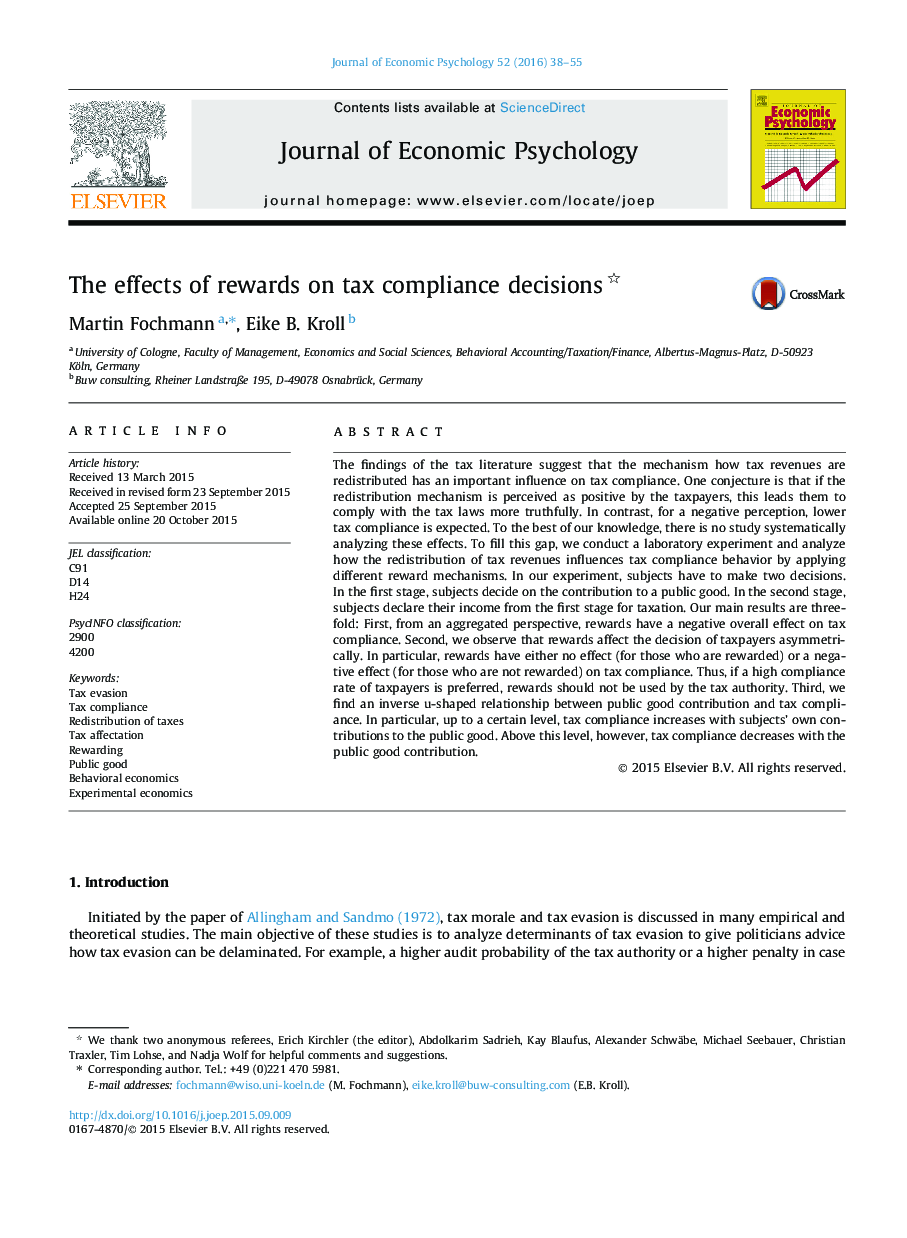| کد مقاله | کد نشریه | سال انتشار | مقاله انگلیسی | نسخه تمام متن |
|---|---|---|---|---|
| 884884 | 1471714 | 2016 | 18 صفحه PDF | دانلود رایگان |
• We analyze how the redistribution of tax revenues influences tax compliance behavior by applying different reward mechanisms.
• First, rewards have a negative overall effect on tax compliance.
• In particular, for those who are rewarded, rewarding has no positive effect.
• For those who are not rewarded, rewarding has a negative effect.
• Second, willingness to corporate (in a PG game) and tax compliance are inverse u-shaped related.
The findings of the tax literature suggest that the mechanism how tax revenues are redistributed has an important influence on tax compliance. One conjecture is that if the redistribution mechanism is perceived as positive by the taxpayers, this leads them to comply with the tax laws more truthfully. In contrast, for a negative perception, lower tax compliance is expected. To the best of our knowledge, there is no study systematically analyzing these effects. To fill this gap, we conduct a laboratory experiment and analyze how the redistribution of tax revenues influences tax compliance behavior by applying different reward mechanisms. In our experiment, subjects have to make two decisions. In the first stage, subjects decide on the contribution to a public good. In the second stage, subjects declare their income from the first stage for taxation. Our main results are threefold: First, from an aggregated perspective, rewards have a negative overall effect on tax compliance. Second, we observe that rewards affect the decision of taxpayers asymmetrically. In particular, rewards have either no effect (for those who are rewarded) or a negative effect (for those who are not rewarded) on tax compliance. Thus, if a high compliance rate of taxpayers is preferred, rewards should not be used by the tax authority. Third, we find an inverse u-shaped relationship between public good contribution and tax compliance. In particular, up to a certain level, tax compliance increases with subjects’ own contributions to the public good. Above this level, however, tax compliance decreases with the public good contribution.
Journal: Journal of Economic Psychology - Volume 52, February 2016, Pages 38–55
